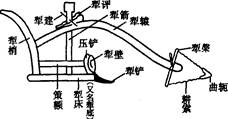Even their parents struggle to draw the tiniest hint of emotion or social connection from autistic(患孤独症的) children, so imagine what happens when a stranger sits with the child for hours to get through the standard IQ test. For 10 of the test’s 12 sections, the child must listen and respond to spoken questions. Since for many autistics it is torture to try to engage with someone even on this impersonal level, it’s no wonder so many wind up with IQ scores just above a carrot’s. More precisely, fully three quarters of autistics are classified as having below-normal intelligence, with many deemed mentally retarded.
Researchers have tried a different IQ test, one that requires no social interaction. As they report in the journal Psychological Science, autistic children’s scores came out starkly different than on the oral, interactive IQ test — suggesting a burning intelligence inside these kids that educators are failing to uncover.
For the study, children took two IQ tests. In the more widely used Wechsler, they tried to arrange and complete pictures, do simple arithmetic, demonstrate vocabulary comprehension and answer questions— almost all in response to a stranger’s questions. In the Raven’s Progressive Matrices test, they got brief instructions, then went off on their own to analyze three-by-three arrays of geometric designs, with one missing, and choose the design that belonged in the empty place. The disparity in scores was striking. Overall, the autistics scored around the 30th percentile on the Wechsler, which corresponds to "low average" IQ. But they averaged in the 56th percentile on the Raven’s. not a single autistic child scored in the "high intelligence" range on the Wechsler; on the Raven’s, one third did. Healthy children showed no such disparity.
That presents a puzzle. If many autistics arc more intelligent than an IQ test shows, why haven’t their parents noticed Partly because many parents welcome a low score, which brings their child more special services from schools and public agencies. But another force is at work. "We often think of intelligence as what you can show, such as by speaking fluently," says a psychologist. "Parents as well as professionals might be biased to look at that" rather than dig for the hidden intellectual spark.
The challenge is to coax that spark into the kind of intelligence that manifests itself in practice. That is something autism researchers are far from doing. Many experts dismiss autistics’ exceptional reading, artistic or other abilities as side effects of abnormal brain function. They advise parents to steer their child away from what he excels at and obsesses over, and toward what he struggles with. It makes you wonder how many other children, whose intellectual potential we’re too blind to see, we’ve also given up on.
The author indicates that autism researchers should not focus on ()
A. trying to use IQ test methods which are suitable for autistic children to get reasonable scores
B. asking the parents of autistic children to find abilities such as reading in their children
C. finding ways to teach autistic to communicate and engage with strangers
D. encouraging autistic children to make use of their own intelligence in practice

